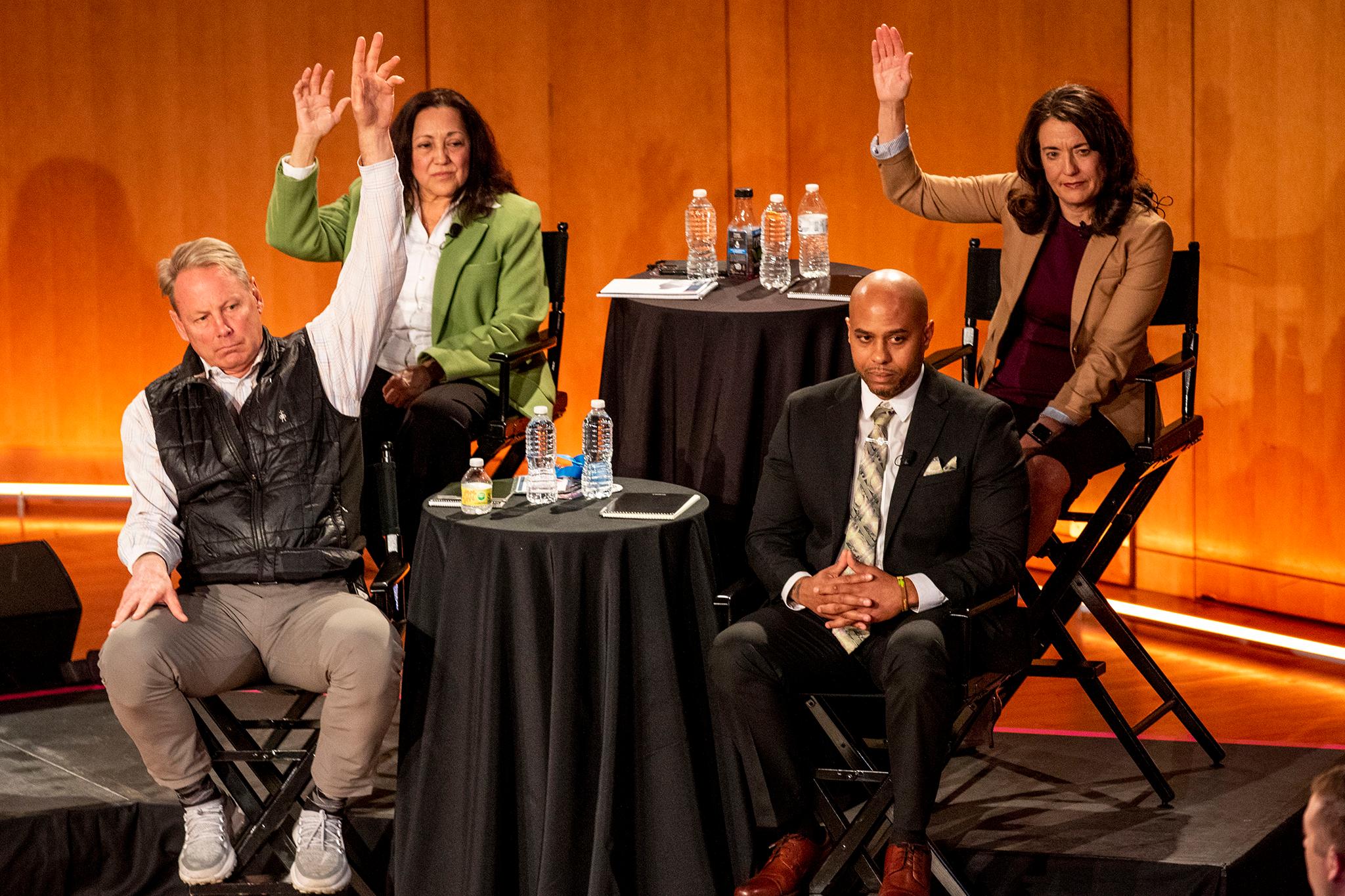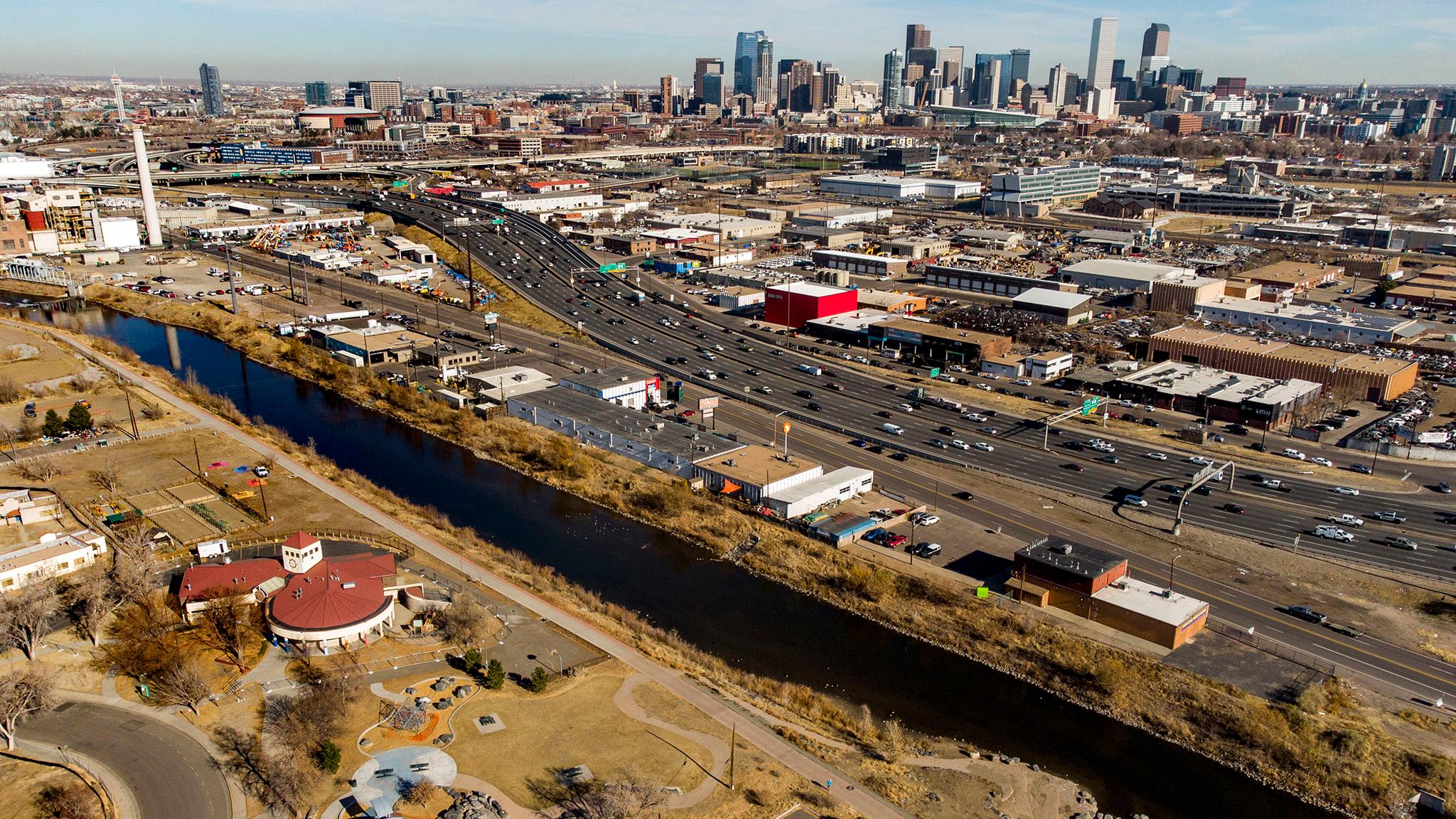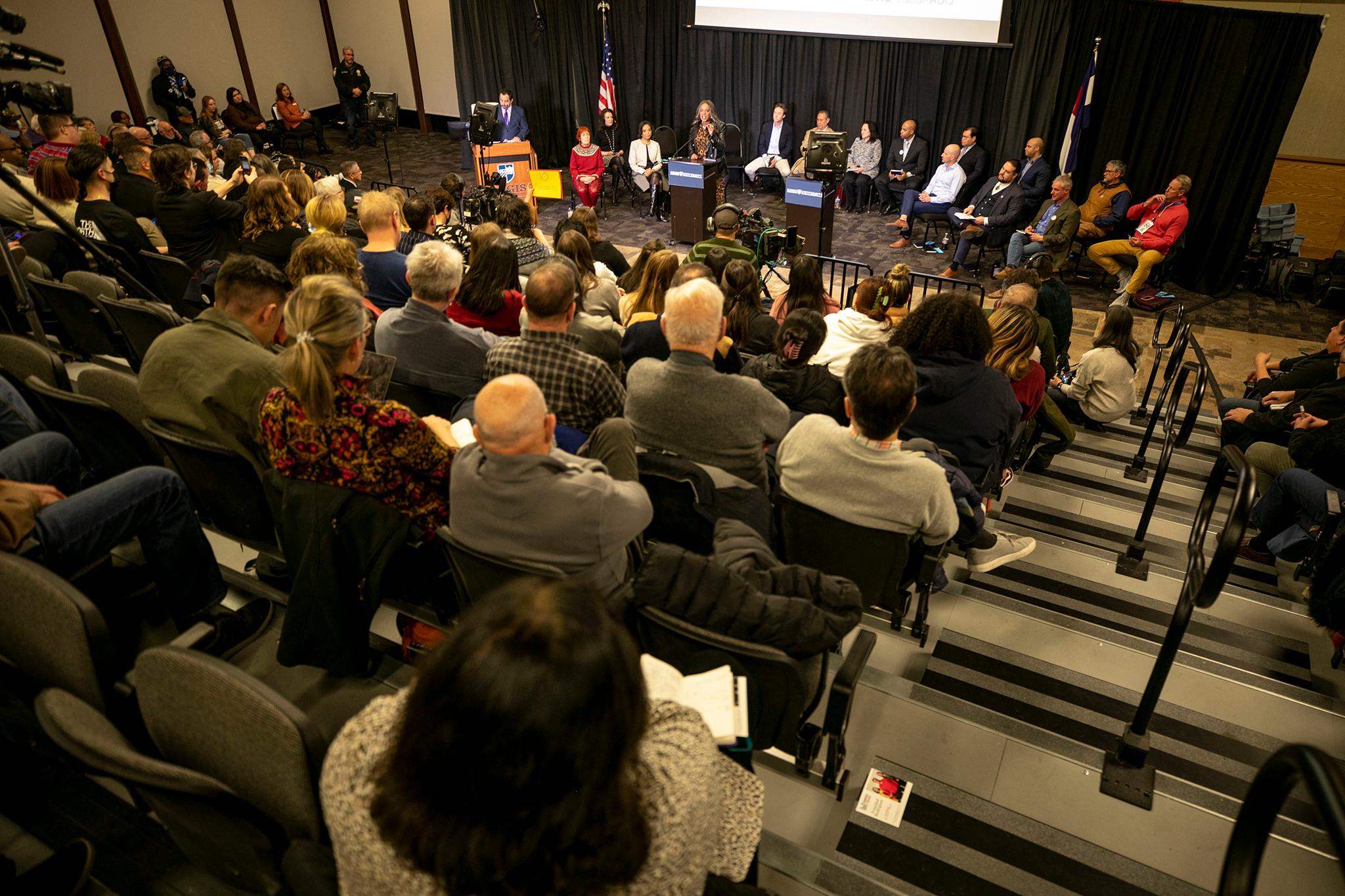UPDATE: Out full voter guide is now live and you can read it by clicking here.
Denverite has covered the 2023 mayor's race breathlessly for months. And it's been fun.
Here's why: We've been blown away by the number of people wanting to run the city. We've been entertained (and occasionally flummoxed) by candidates' antics and obstacles. We've been in awe of all the ideas -- well, many of them -- about how to fix this place and help it thrive.
We've been fascinated by how this race fits into Denver's history and future and this weird present we're in, where the economy is uncertain, the demographics of the city are uncertain and what people want is -- well, uncertain.
All of that means there's a lot to explore.
You? Us? We're in this 2023 election together.
Here's what we've done so far:
We've talked to every single candidate running. Here they are listed in the order they'll appear on your ballot.
We've reported on many of the candidates' platforms as they've been released: the good, the bad, and the ugly -- all in the eye of the beholder, of course.
We've produced issue-specific coverage of candidates who have released plans: Rougeot, Hansen, Brough, Spearman, Calderón, Herod, Johnston, Roberts, and Rodriguez, to name a few in alphabetical order by first name, because, why not? We've even covered the launch of Walsh's worker-first Bread and Roses bike tour of all 78 Denver neighborhoods.
Often, we're the only reporters in the city showing up to events.
We've covered campaign fundraising: Who's bringing in the most money, who isn't and why?
We've dug into the rollout of the Fair Elections Fund and the issues it's faced, including a mid-election tweak to the rules. We also looked at what happens to the money if candidates drop out of the race.
We've reported on the first T.V. ad, a website fiasco, an AI mayor and more.
We've covered debates and forums, including one of the first that took place at the Park Hill Golf Course and the first Fair Elections Fund debate at Regis University, and the second Fair Elections Fund debate at Metro State University.
We've explored, in-depth, what the mayor actually does and how much power the position has. And we've spoken to four Denver mayors about their takes on the role and what's needed in it.
Our work is just beginning heading into the April 4 election and an almost inevitable run-off between the top two vote getters.
Is there anything singularly important about this specific race?
Not one thing but many! We've spoken to dozens of Denverites in neighborhoods around the city and community organizations, and they've told us what's on their mind and what issues they want the next mayor to fix.
Denverites are worried about the city's affordability, with housing costs being top of mind for many. Some Denverites are happy about the growth, others are frustrated -- and most we've spoken to want it better managed.

They're concerned about public safety and rising crime, though many also remain focused on accountability for police and finding alternative means to achieve community safety.
People say they are concerned about homelessness -- both the struggles of people living on the streets and the effects of homelessness on residents across the city as a whole.
Some want better transportation and more investment in recreation centers and homeless shelters. Others are concerned about education funding, wanting more money going to the schools.
People want solutions, and it's clear that the people of the city understand that the mayor's seat can try to tackle many of these issues.
So is this why Denverite is spending so much time on the race?
Exactly.
The mayor is powerful. The role is often described as the strongest elected position in the state.
The mayor sets the budget, makes more than 700 appointments, is the boss of Denver International Airport, the police department, the sheriff's department, the Department of Public Safety and more than 11,000 city employees.
And assuming City Council isn't fully opposed to the mayor's vision -- and that is rarely the case, the mayor can shape everything from the design and the economy of the city to the spirit of the place.
The mayor touches most of what we love and hate about Denver.

And mayors stick, because Denver is a city that mostly reelects incumbents. That happened three times for our current mayor, Michael Hancock, for John Hickenlooper ('til he ran for governor), Wellington Webb and Federico Peña, who decided to leave after two terms.
There have only been three elected mayors in the 21st century: Webb, Hickenlooper and Hancock. In that time, there have only been two races when there wasn't an incumbent -- until now. This is rare and a big opportunity for whoever's lucky enough to win over the public.
If somebody wins the office and doesn't quit first, there's a good chance the person will hold the role for the next 12 years.
The new administration will shape the city's future for years to come. Decisions made by mayors a hundred years ago or more shape the city's present today, and as Hancock told us, mayors carry out each other's legacies.
So it's important, even if you're not following politics blow by blow, to brush up on who's running, what they believe in and what troubles they may have. After all, we can help pick who leads us.
So what's Denverite's approach to covering the race?
We are diving into the candidates' approaches to the issues readers have told us matter to them. When candidates drop significant proposals on these issues, we report about them.
To name a few, we've written about:
- Herod's plan for public safety and police accountability;
- Johnston's plan to "end homelessness" in his would-be first term;
- And Calderón's community-shaped plan for people experiencing homelessness.
We've also focused on candidates who are making waves, either in name recognition through the limited polling we've seen or through donations -- both quantity of money and the Fair Elections Fund.
And we're going to keep covering the candidates putting out plans that may affect you and how you live, play and go about being in this city
Our team at Denverite has many of the same questions you do, and we're looking for answers. In a crowded election, we want to make sense of it all. And we want the entire city to be informed by clear-headed reporting as voters sit down to decide who to support in the general election and eventually the run-off.
So here's the deal. We'll keep covering this race. You keep reading and letting us know what you want from our coverage.
And if you have questions, you're in good company (or at least, our company). We're an email away at [email protected].












